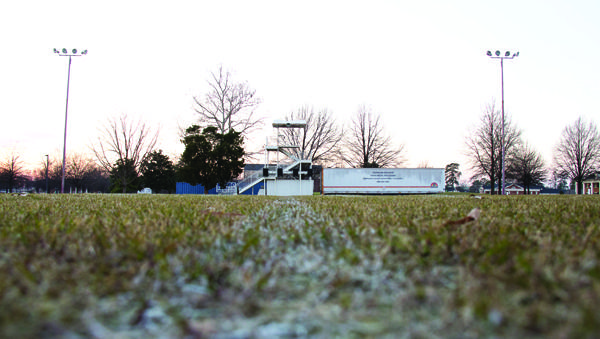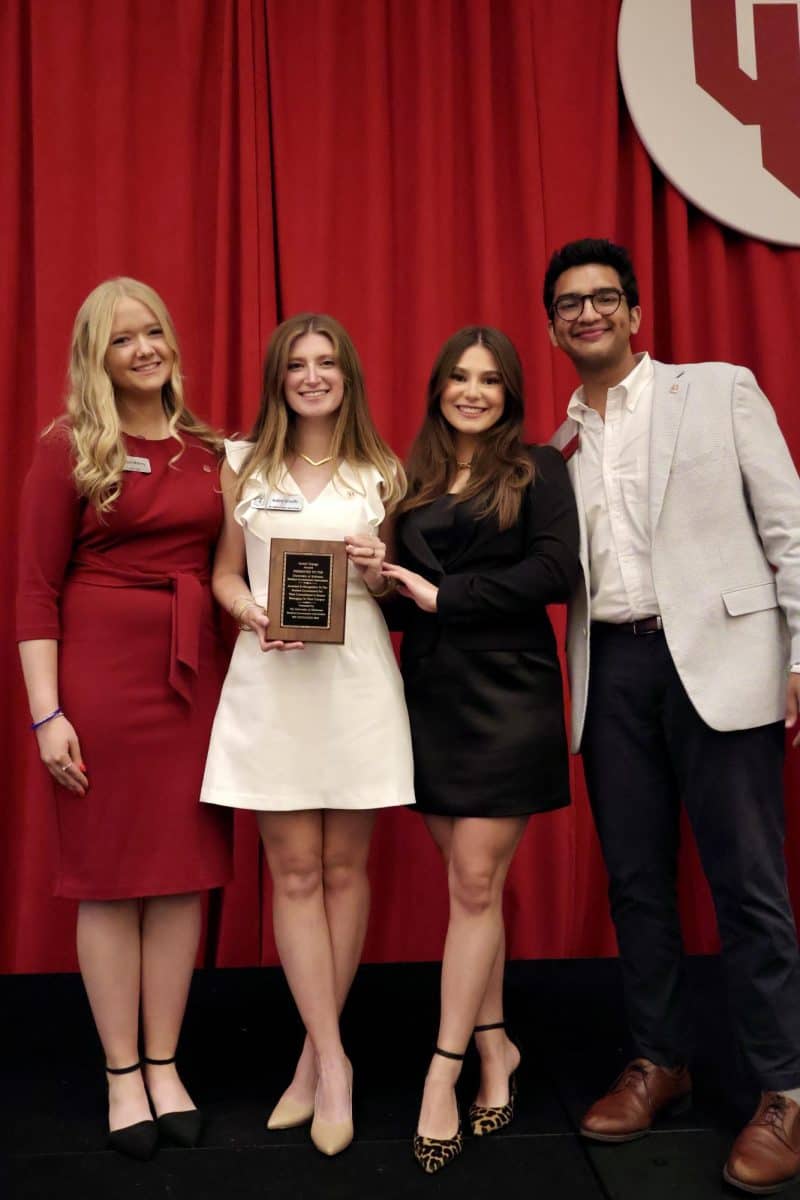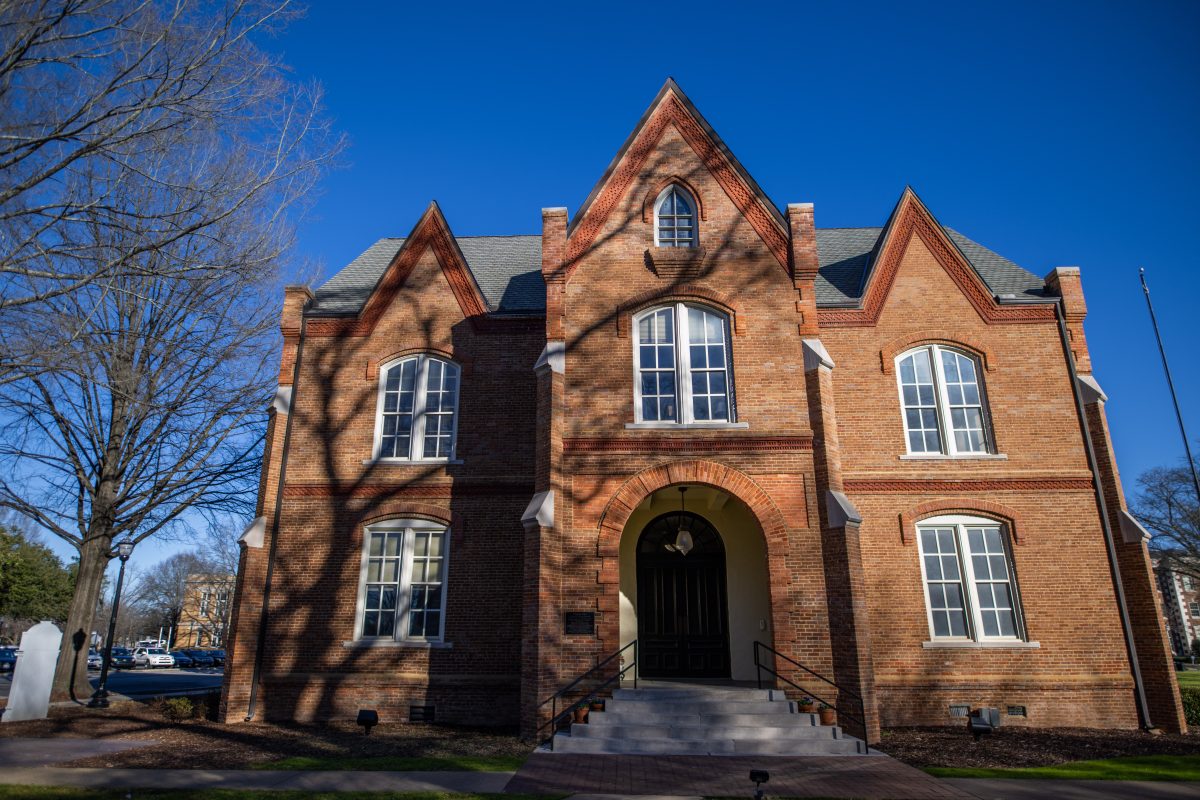By Judah Martin and Adrienne Burch
The Million Dollar Band spends hours practicing on Butler Field during the fall semester, but if nature calls during practice, members have one option – the public restrooms in the Arby’s next door.
The MDB practices in almost all weather, including rain, and many members have to keep a bottle or canteen stocked with water to avoid dehydration.
Claire Sibley, a junior in the band, said since they don’t have a practice facility of their own members usually walk to the nearby Arby’s to use their restroom.
“A lot of people don’t realize that Butler Field is all we have,” Sibley said. “We don’t have a building for instrument storage, we don’t have shelter from the rain during rehearsals, and we rely on the kind people at Arby’s and the generosity of different religious organizations for sectional practice rooms.”
Sibley said she was shocked by this when she joined the band and, though the Moody Music Building allows the band to share their space, there is not much room for both the band and the School of Music.
“’I thought ‘what band doesn’t have a band room?’” she said. “I don’t mean to sound ungrateful for all that our athletic department provides us. We have one of the most well run and successful athletic programs in the country, and they provide the band with so many opportunities to perform and grow as musicians. It would just be really nice to have bathrooms.”
Sibley said the band often has to cancel rehearsals because of bad weather or they risk damaging their instruments because they must practice in the rain.
“We certainly do the best we can with the resources we do have because we all believe the University, our team, and our fans deserve to have the best band in the country,” she said. “We want to be able to have a productive rehearsal everyday, but it’s disheartening when we lose a week’s worth of rehearsal because of storms.”
Heath Nails, program assistant for the band, said they are sponsored by the athletic department and, despite complaints from band members, he feels they are well taken care of.
“We’re very fortunate that we don’t have to do any fundraising,” Nails said. “We don’t have to raise any money from the students.”
But while MDB members march outside, Auburn University is constructing a $6 million practice facility for their marching band that will include a $500,000 courtyard, $1 million pavilion, $1 million practice field, separate concert halls for both the concert and marching bands, a percussion studio and a pedestrian bridge.
According to an Auburn University news release, Auburn’s athletic department contributed $1.5 million to the new building and the band is raising the remainder of the funds. The University of Alabama director of bands, Kenneth Ozzello, said the UA athletic department has no specific plans for any such facility.
Scholarships are also an incentive for gaining members to many schools’ marching bands. Michael Robinson, director of the Redcoat Band at The University of Georgia, said his band also is 95 percent funded by their athletic department and awards about $100,000 in scholarships for band students each year.
The 2012 Million Dollar Band handbook reports that a small percentage of MDB members receive scholarships.
“A majority of the students in the band do not receive a scholarship and volunteer almost 20 hours per week, not including individual practice time outside of rehearsals, just because they love supporting our team and playing for our fans,” Sibley said.
MDB scholarships are provided by the Million Dollar Band Association, which is made up of former members and friends of the MDB, she said.
“Typically we give $500-$1,000 to somebody who qualifies, and it’s renewable each year,” Ozzello said. “We don’t give a full ride, but it’s something to help them with their expenses.”
Sophomore Josh Gresham marched trombone in the MDB in 2011. He said he thinks that money is being held away from the band.
“But, that’s nothing new and it has almost come to be expected,” Gresham said.







